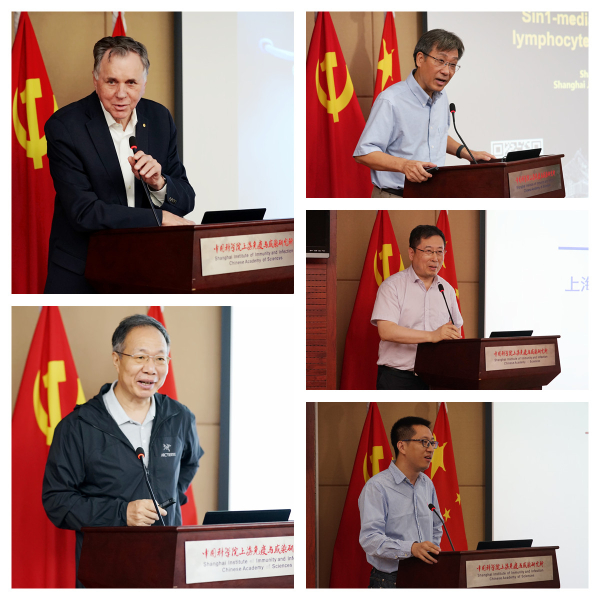On July 31, Shanghai Institute of Immunity and Infection, Chinese Academy of Sciences (SIII-CAS) held “Biomedical Innovation Forum” in Shanghai, which focused on the fundamental research, diagnosis and treatment, and prevention and control strategies of digestive and respiratory diseases.
Five senior experts were invited to share their research work. Prof. Barry James Marshall of the University of Western Australia, who was awarded the 2005 Nobel Prize in Physiology or Medicine for his outstanding achievement of discovering the relationship between Helicobacter pylori and gastric diseases, gave a keynote speech “Innovation and Curiosity Driven Research: Lessons from the Nobel Prize”.
Prof. YANG Ruifu and Prof. FANG Jingyuan from Shanghai JiaoTong University presented " Human gut microbiota and colorectal cancer" and " Intestinal flora prevent and treat colorectal cancer by regulating host metabolism and immunity " respectively, on the topic of gut microbiota and intestinal cancer. They systematically introduced the intricate relationship between gut microbiota, host and diseases, based on the work from basic research to clinical medicine.
Prof. SU Bing, Director of Shanghai Institute of Immunology and Chair of Department of Immunology and Microbiology at Shanghai JiaoTong University School of Medicine, reported "Sin1-mediated mTORC2 signal in lymphocyte growth and metabolism" in detail, as well as its physiological and pathological roles in immune and inflammation-related diseases.
Prof. WANG Cheng-Yuan, Group leader of Transcription Regulation Study and Antibiotics Development for Drug-resistant Pathogen Unit at SIII, shared his research progress on " Transcription-translation coupling in bacteria ", which provided a new approach for antibiotics and relevant drugs.
The speakers, researchers and students at SIII had a warm and in-depth discussion accordingly after the reports.
The forum was hosted by Prof. CHEN Changbin, Group leader of Pathogenic Fungal Infection and Host Immunity at SIII.


